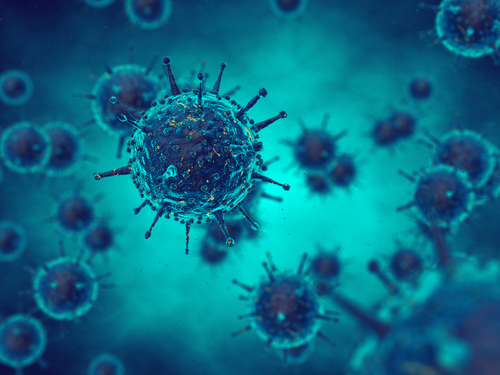COVID-19 May Complicate Neuromuscular Conditions Such as MG, Review Finds

A review of studies related to COVID-19 and neuromuscular disorders such as myasthenia gravis (MG) found that the novel coronavirus can exacerbate symptoms in patients, including those on immune-related therapies.
The review, “Neuromuscular Complications in COVID-19: A Review of the Literature,” was published in the RRNMF Neuromuscular Journal.
COVID-19 may increase the risk of progression of neuromuscular disorders, especially in people with respiratory muscle injury or others receiving long-term immunomodulatory or immunosuppressive therapies.
To better such risks, a team of researchers at the University of Buffalo (UB) in New York, and the Cleveland Clinic in Ohio, conducted a review of studies that mentioned COVID-19 and neuromuscular conditions published from the start of the pandemic until mid-June.
“Although neuromuscular complications of COVID-19 have not received as much publicity as stroke complications, they are being increasingly reported,” Gil Wolfe, MD, study author and professor at UB, said in a news story.
Using the keywords “coronavirus” and “neurology,” a search yielded 547 publications covering neuromuscular conditions such as Guillain-Barré syndrome (GBS), myopathy, hyperCKemia, acute myelitis, and MG.
MG is characterized by immune attack against proteins at the neuromuscular junction, breaking down the communication between nerve cells and muscles. People with the disorder are vulnerable to infections that induce exacerbations. Also, the use of immunosuppressive medicines to treat the condition place these patients at an increased risk for infections in general.
The review identified seven generalized MG patients, all from the U.S., who contracted COVID-19. Five were women and two were men, age range 42 to 90. Six patients had autoantibodies that targeted the acetylcholine receptor and one against the muscle-specific kinase protein.
Mechanical ventilation for respiratory failure was required for three patients, and one was given significant supplemental oxygen. Two patients showed signs of exacerbation; however, “such an impression could have been hindered by the need for ventilation and sedation in COVID-19 patients with severe pulmonary dysfunction,” the scientists said.
While one patient remained on mechanical ventilation at day 35, the outcome in the other six was fairly good, the team said.
The team identified a publication for the management of MG patients with recommendations from an expert panel. The general guidance for those who develop COVID-19 is to continue current treatment, but doses of corticosteroids may need to be increased.
In hospitalized patients, therapies that deplete immunity, in particular those that reduced antibody-producing immune B-cells, may impair the immune response to the coronavirus. However, standard immunosuppressives such as CellCept (mycophenolate mofetil, by Genentech), and azathioprine, may be continued.
In addition, treating MG patients with experimental medicines such as the anti-malarial hydroxychloroquine and the antibiotic azithromycin requires caution as they have been associated with MG worsening, the investigators added.
The search also identified 27 worldwide cases of GBS, an autoimmune disorder that damages nerves. GBS, which typically causes weakness and tingling in the extremities, already was the most commonly reported neuromuscular complication of COVID-19 at the time of the study. Four cases were found in the U.S. Among the total 27 patients (mean age 58.8), 16 improved, while nine did not show significant improvement or had a worsening clinical status.
Overall, people with neuromuscular disorders on immune-related therapies, as well as those with respiratory problems in addition to neuromuscular disease, should be “considered high risk for severe COVID-19 infection,” the researchers wrote.
Although large studies are still needed to enable evidence-based guidance, they recommended such patients to notify their healthcare provider immediately if COVID-19 symptoms appear. Healthcare providers can “expect to see a good number of COVID-19 patients who develop critical illness neuropathy [nerve damage] and myopathy, complications that can arise in patients who are severely ill in intensive care units from just about any cause,” Wolfe said.
“Both of these complications can prolong the amount of time patients require mechanical ventilator assistance,” he added.






